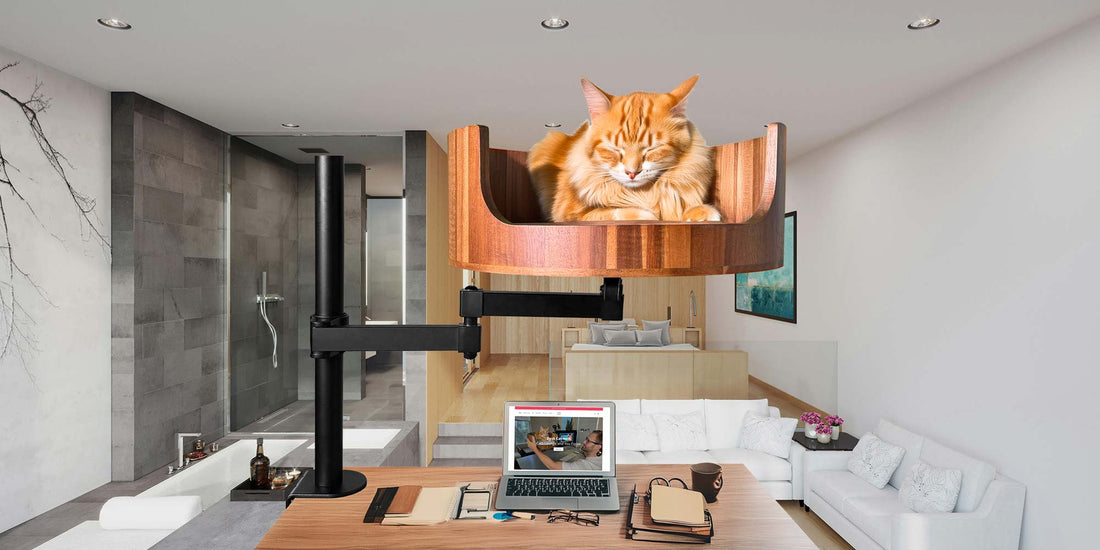
Why Do Cats Yowl: Understanding Feline Communication
Share
Have you ever wondered what your cat is trying to tell you with their loud, plaintive yowls? From meowing and purring to hissing and growling, feline communication can be complex and nuanced. In this article, we will explore the reasons why cats yowl and how to better understand and interpret your feline friend's vocalizations.
Cats are known for being mysterious and independent creatures, but their vocalizations are often a clear indication of their needs, emotions, and desires. Whether it's a loud yowl for attention, a low growl of warning, or a high-pitched yelp of distress, each meow has its own unique meaning. By learning to decipher your cat's vocal cues, you can better communicate with them and build a stronger bond. Throughout this article, we will delve into the various reasons why cats yowl, including hunger, stress, mating behavior, and even pain. By gaining a deeper understanding of feline communication, you can provide better care for your beloved pet and ensure a happier, healthier relationship.
1. Cats yowl as a form of communication to express their needs, wants, and emotions.
2. Understanding the context in which a cat is yowling can provide insight into what it is trying to communicate.
3. Yowling can indicate fear, pain, hunger, loneliness, or territorial behavior in cats.
4. Cats may yowl excessively due to underlying health issues or changes in their environment.
5. By observing your cat's body language and vocalizations, you can better respond to their communication and strengthen your bond with them.
Understanding Cat Communication
Cats are known for their unique ways of communicating, including meowing, purring, and yowling. While meowing is typically used to get a human's attention, yowling is a more intense form of feline communication that can indicate a range of emotions or needs. By understanding the reasons behind why cats yowl, we can better address their needs and behaviors.
Common Reasons for Cat Yowling
There are several common reasons why cats may yowl, including mating behavior, territorial disputes, medical issues, or simply seeking attention. Mating behavior is a common reason for yowling in unspayed females, as they may be signaling their readiness to mate to male cats. Territorial disputes can also lead to yowling between cats, as they establish boundaries and assert dominance. Additionally, medical issues such as pain or discomfort can cause cats to yowl as a way of expressing their distress.
Responding to Cat Yowling
When a cat yowls, it is important to observe their behavior and context to determine the underlying cause. If the yowling is related to mating behavior, spaying or neutering the cat can help alleviate the issue. Providing environmental enrichment, such as toys, scratching posts, and interactive play, can help reduce territorial disputes and boredom-related yowling. In cases of medical issues, it is essential to seek veterinary attention to address any underlying health concerns.
Case Study: Lily's Yowling Behavior
Lily, a seven-year-old female cat, started yowling excessively at night, keeping her owners awake. After ruling out any medical issues with a vet check-up, her owners realized that Lily was yowling due to separation anxiety. By implementing a routine of playtime and interactive toys before bedtime, Lily's yowling behavior decreased significantly, providing relief for both Lily and her owners. This case study highlights the importance of understanding the root cause of cat yowling and addressing it appropriately.
Frequently Asked Questions
Why do cats yowl?
Cats may yowl for a variety of reasons, including seeking attention, feeling anxious or stressed, discomfort or pain, mating behavior, or age-related cognitive decline. Therefore, it is essential to understand the underlying cause of your cat's yowling to address it appropriately.
How can the Desk Cat Nest help with my cat's yowling?
The Desk Cat Nest provides a comfortable and secure space for your cat to rest and relax, reducing stress and anxiety that may contribute to excessive yowling. Additionally, the cozy design of the Desk Cat Nest can help your cat feel safe and content, potentially decreasing the need for attention-seeking behavior.
Is the Desk Cat Nest suitable for all cats?
The Desk Cat Nest is designed to accommodate most cats, but individual preferences may vary. Some cats may prefer open spaces or specific types of bedding. It is essential to observe your cat's behavior and comfort level in the Desk Cat Nest to determine if it is suitable for them.
Can the Desk Cat Nest help with age-related yowling in older cats?
While the Desk Cat Nest can provide a comfortable and secure space for older cats, age-related yowling may require veterinary attention to address any underlying health issues. However, the calming environment of the Desk Cat Nest may help reduce stress and anxiety in older cats, potentially improving their overall well-being.
In conclusion, providing your cat with a comfortable and cozy space, such as the Desk Cat Bed, can help alleviate stress and reduce instances of yowling. The soft and padded design of the bed offers a sense of security and warmth for your feline friend, encouraging them to relax and rest peacefully. By choosing the Desk Cat Bed, you are not only investing in your cat's comfort but also in a solution to the problem of excessive yowling. Make the smart choice for your cat's well-being and consider the Desk Cat Bed for a peaceful and harmonious home environment.



















































